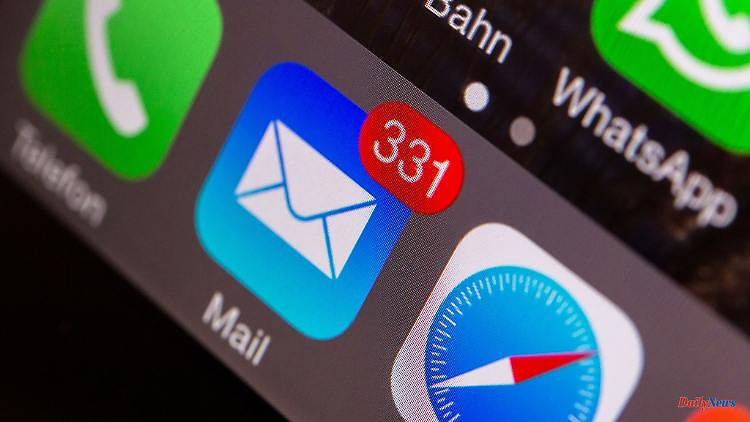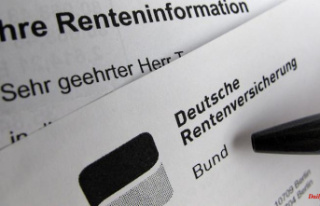You have 1499 unread e-mails: anyone who is confronted with this message in their professional inbox after their vacation may be thinking about radical measures. Delete everything! But is that allowed?
It is one of the reasons why many employees dread returning to work after vacation: sometimes there are hundreds or even thousands of unread e-mail messages in the mailbox that need to be processed. Are employees allowed to make life easy for themselves and delete parts of it unseen?
Nathalie Oberthür, a specialist lawyer for labor law in Cologne, has a clear answer: "E-mails are operational communication that must not simply be deleted." Employees can therefore not avoid actually viewing the incoming messages.
After all, it can always be about orders or important customer information. Anyone who does not comply with the requirements violates contractual obligations and, according to Oberthür, must expect sanctions under labor law in the worst case, such as a warning or even dismissal.
And what happens when employees indicate in their absence notice that e-mails received during their absence will be deleted unseen when they return? Such an announcement to the recipient is possible, says Oberthür. "But only with the consent of the employer." Otherwise there is also a risk of trouble.
Basically, if you want to avoid an overflowing inbox, the easiest thing to do before going away for a longer period of time is to clarify who can process incoming e-mails during your vacation.
In principle, the employer is then allowed to access and process e-mails with a business connection during the absence of his employee if he has fundamentally forbidden private e-mails in the office.
Something else applies if the boss has allowed private e-mails in the company - i.e. private and professional messages arrive in the mailbox. Then the employer and colleagues are usually not allowed to simply access the mailbox. In the event of violations of personal rights or data protection regulations, the employer faces fines. "Employees may also be entitled to compensation claims in the event of violations.
About the person: Nathalie Oberthür is a specialist lawyer for labor law and chairwoman of the labor law committee of the German Bar Association (DAV).
(This article was first published on Tuesday, August 09, 2022.)












